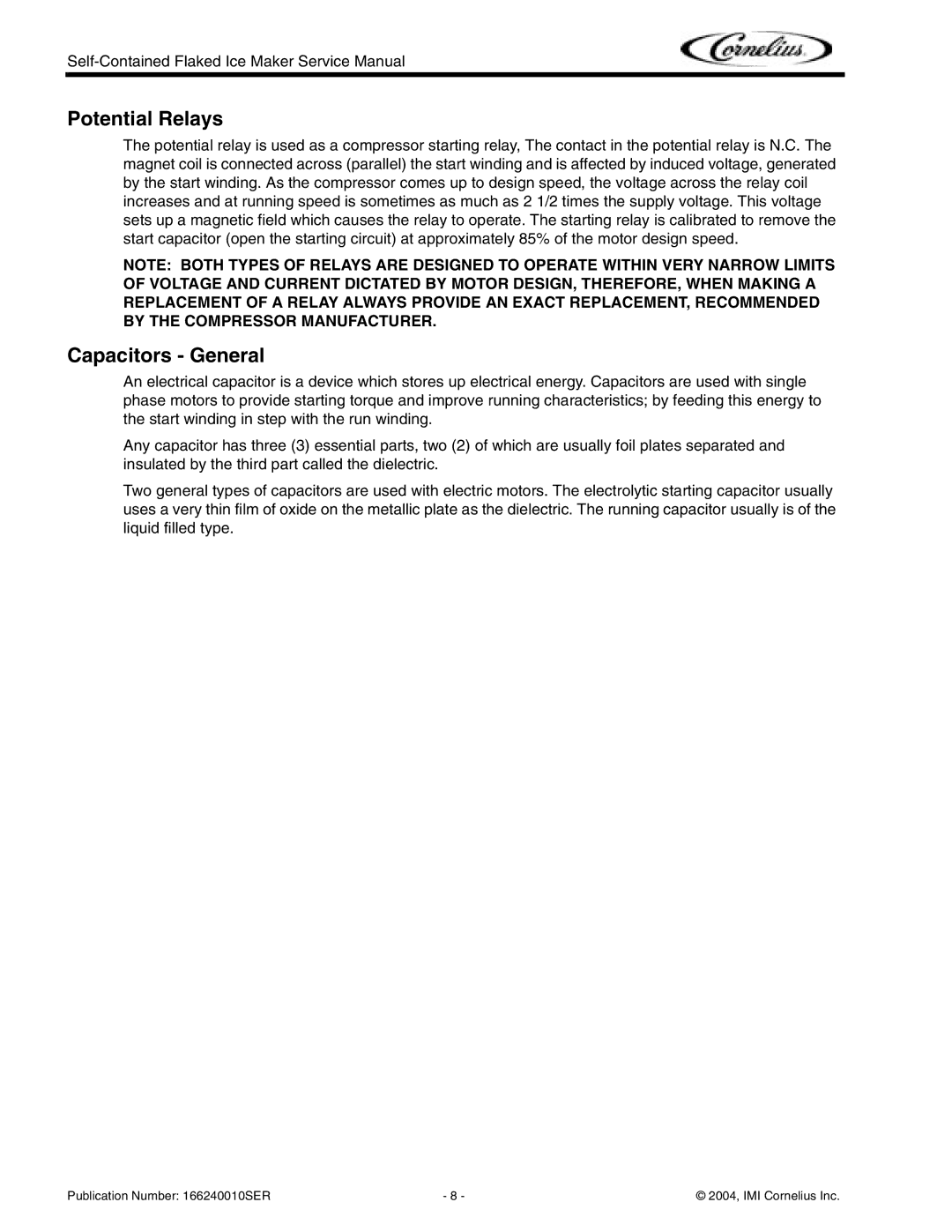Potential Relays
The potential relay is used as a compressor starting relay, The contact in the potential relay is N.C. The magnet coil is connected across (parallel) the start winding and is affected by induced voltage, generated by the start winding. As the compressor comes up to design speed, the voltage across the relay coil increases and at running speed is sometimes as much as 2 1/2 times the supply voltage. This voltage sets up a magnetic field which causes the relay to operate. The starting relay is calibrated to remove the start capacitor (open the starting circuit) at approximately 85% of the motor design speed.
NOTE: BOTH TYPES OF RELAYS ARE DESIGNED TO OPERATE WITHIN VERY NARROW LIMITS OF VOLTAGE AND CURRENT DICTATED BY MOTOR DESIGN, THEREFORE, WHEN MAKING A REPLACEMENT OF A RELAY ALWAYS PROVIDE AN EXACT REPLACEMENT, RECOMMENDED BY THE COMPRESSOR MANUFACTURER.
Capacitors - General
An electrical capacitor is a device which stores up electrical energy. Capacitors are used with single phase motors to provide starting torque and improve running characteristics; by feeding this energy to the start winding in step with the run winding.
Any capacitor has three (3) essential parts, two (2) of which are usually foil plates separated and insulated by the third part called the dielectric.
Two general types of capacitors are used with electric motors. The electrolytic starting capacitor usually uses a very thin film of oxide on the metallic plate as the dielectric. The running capacitor usually is of the liquid filled type.
Publication Number: 166240010SER | - 8 - | © 2004, IMI Cornelius Inc. |
